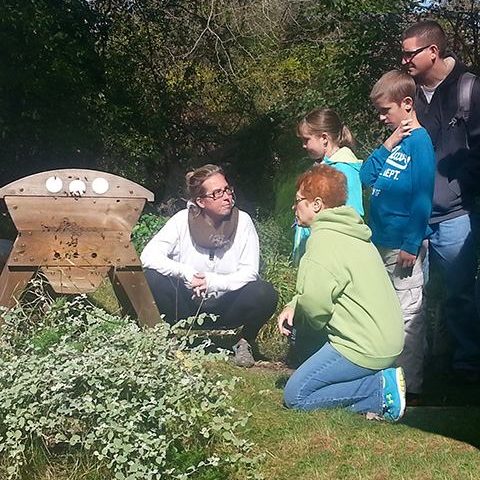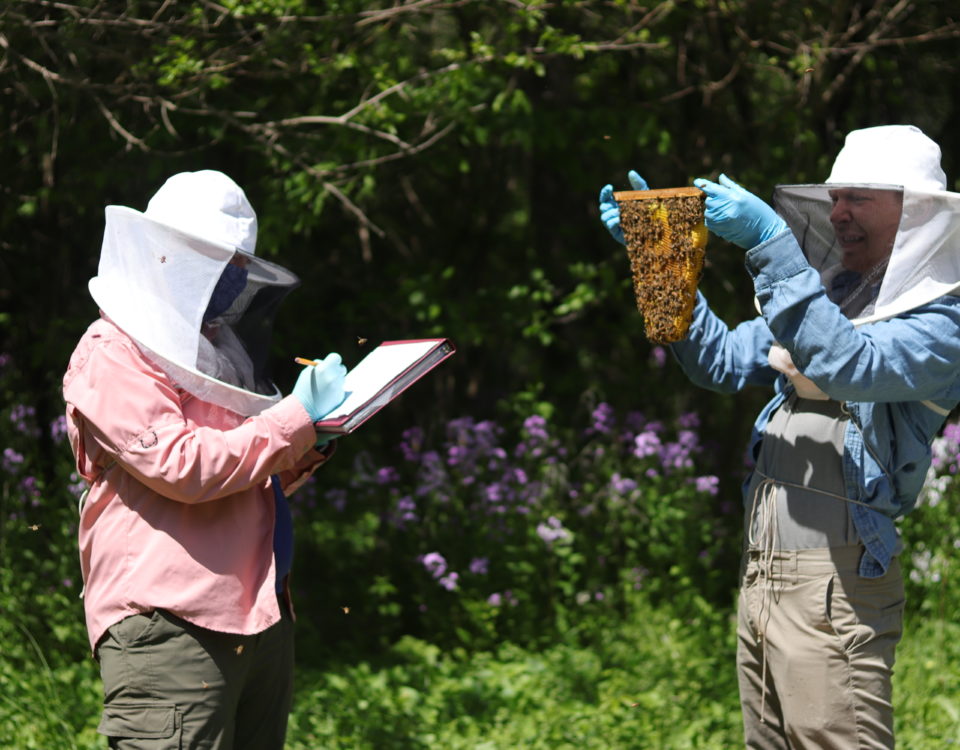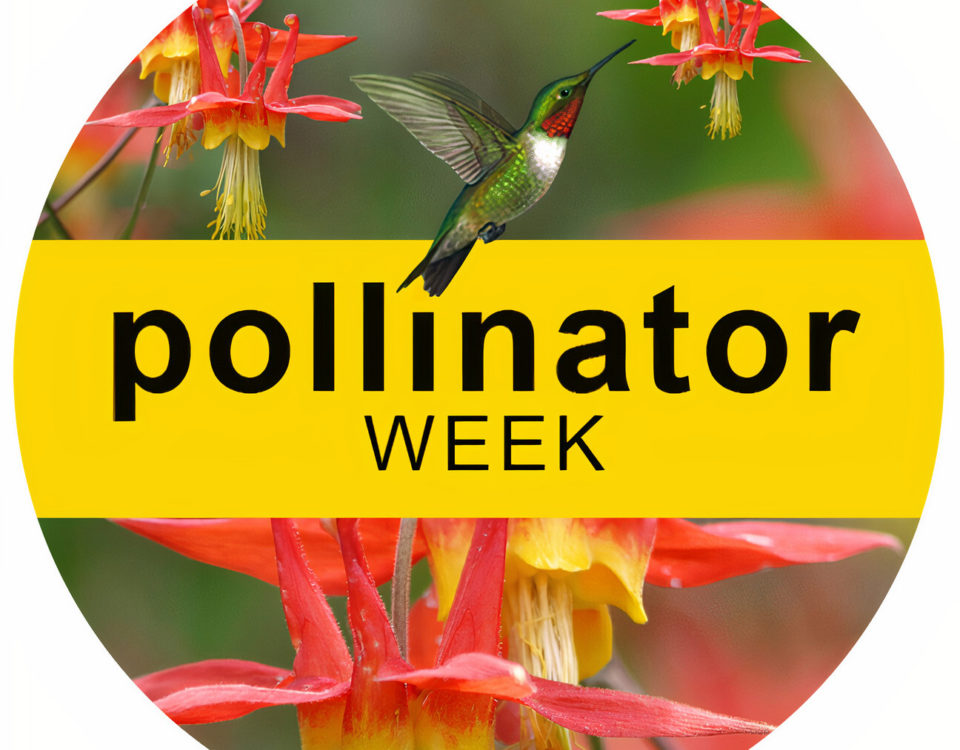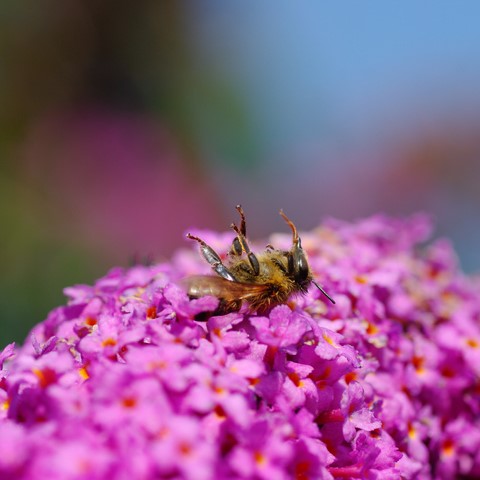- All-In-One Beekeeping for the Bees
- +1-608-728-8233
- info@beepods.com
Seven Reasons to Start Beekeeping Right Now

Students gather to view bees through a Beepods viewing window known at Bee TV.

Spring is the best time to start beekeeping. It gives your hive time to build up, lay eggs (brood), and increase in number before the cold weather sets in. But the time of year isn’t the only reason to start beekeeping now. Read on to see why this is the perfect spring to start a hive.
1. Companionship
In this time of social isolation, people are looking for ways to feel less alone. Some are fostering dogs or kittens. Others are raising chickens. But what better way to cure isolation than to share your yard with 10,000 pollinators? Children home from school especially miss the social connections and will enjoy watching the well-organized family groups through a Beepods observation window. They will also love sharing photographs of themselves in beekeeping attire. In addition, backyard beekeeping connects you to other beekeepers through online forums as well as in-person classes. Beepods members have access to the Beepods Lab where they can ask questions, collaborate with other educators, or even find a mentor.
2. Honey
There’s still time to order bees and equipment and harvest honey by the end of summer. Harvesting honey is one of the best parts of backyard beekeeping. Your budding scientists can explore the chemistry of honey. They can also share jars of honey with neighbors or learn business skills by selling the honey at a farmers’ market or a driveway lemonade stand. Have you tried honey lemonade? And of course, it’s very calming to add a dollop of your own honey to a cup of tea.
3. Science Class
With many students learning at home, they may be missing out on hands-on learning. Backyard beekeeping provides an ongoing agricultural experiment for adults and children alike. Children will attend to the hive on a regular basis, collecting data and connecting scientific concepts to the data. Parents serve as facilitators, guiding their children on the path of learning. Part of the learning includes discovering the impact of chemicals and pests on the lives of bees.
4. Time
Spring is the busiest time for beekeeping. You have extra time created by social isolation. Put it together and you have the perfect time to start a hive. You may need to feed the bees for the first few weeks before the weather warms up and bees begin to forage. It is also important to do routine inspections every week or two. You should expect to spend 45-90 minutes every two weeks caring for your hive. You can figure it’s about as much time and effort as having a vegetable garden.
5. Nature
Connecting with the natural world is especially important in this time of staying at home to prevent the spread of Coronavirus. Adults and children alike are spending much more time staring at screens. Too much screen time can cause insomnia, social disconnection, and weight gain to name a few. Caring for a backyard hive provides the motivation to step outdoors and spend some time away from electronic devices. Besides, why watch TV when there’s Bee TV?
6. Pollinators
Backyard beekeeping helps students make connections to pollinators and the importance of sustaining their populations. Spring is a great time to plant a pollinator garden as well. Families with existing gardens will see benefits from adding a hive to their backyards.
7. Homesteading
There has been an increased interest in urban homesteading activities in recent weeks. This is a teachable moment to help your children learn more about the origin of the products in their lives. As they sew masks for hospitals they begin to think about the people who make or use protective equipment. Likewise, as they harvest honey they gain a much deeper understanding of how honey is produced and harvested as well as the nutritional benefits of organic food.
Are you ready to get started?
Take the Beepods Bee Quiz to see what type of bees would be best for you. Then contact Beepods to begin sustainable beekeeping this spring.
Resources:
https://www.beepods.com/product/honey-bee-deposit/
https://www.beepods.com/learn/faqs/
https://www.gardeners.com/how-to/backyard-beekeeping/8529.html
https://www.popularmechanics.com/home/lawn-garden/how-to/g56/diy-backyard-beekeeping-47031701/
https://www.motherearthnews.com/homesteading-and-livestock/backyard-beekeeping-zmaz75zhol
https://honestbeekeeper.com/832/how-much-time-does-beekeeping-take-its-more-than-you-think/
https://www.salon.com/2020/04/02/backyard-chickens-gardens-canning-preserves-urban-homesteading/
Bill Polacheck
Latest posts by Bill Polacheck (see all)
- Level Up with a Beekeeping Course - September 15, 2020
- Beepods Harvest Box: Helping Your Bees Survive the Winter - September 8, 2020
- Simple Ways You Can Communicate Like a Bee - September 1, 2020



